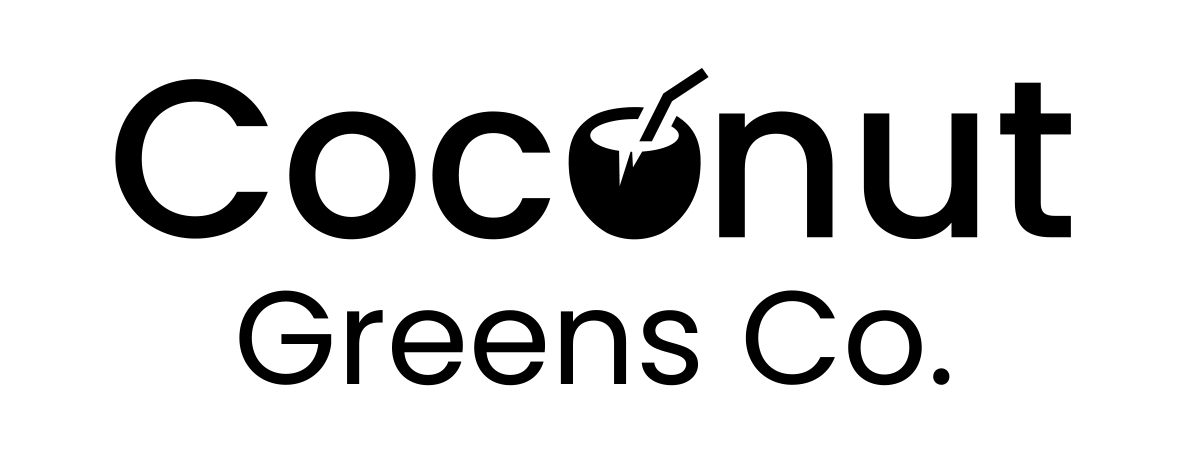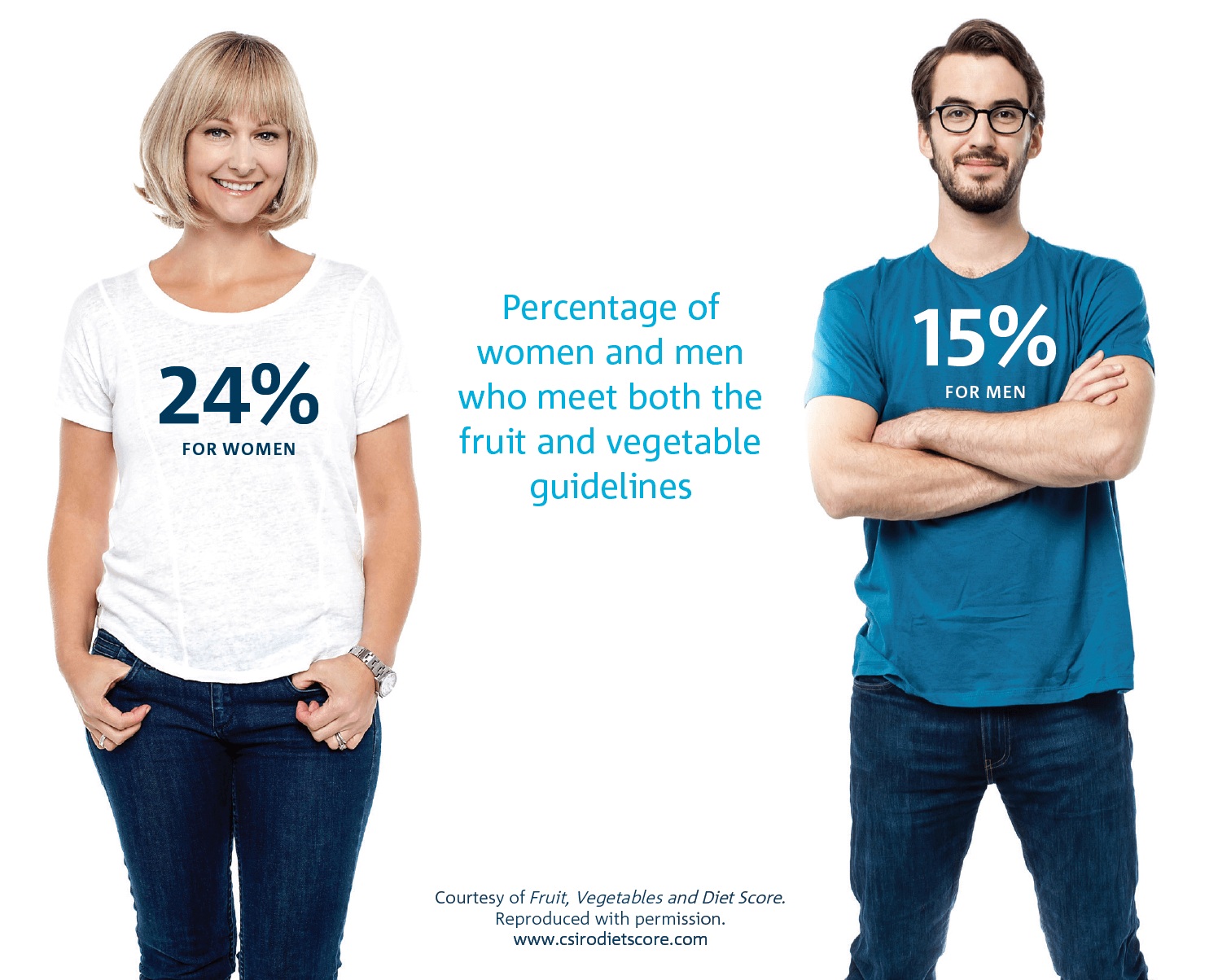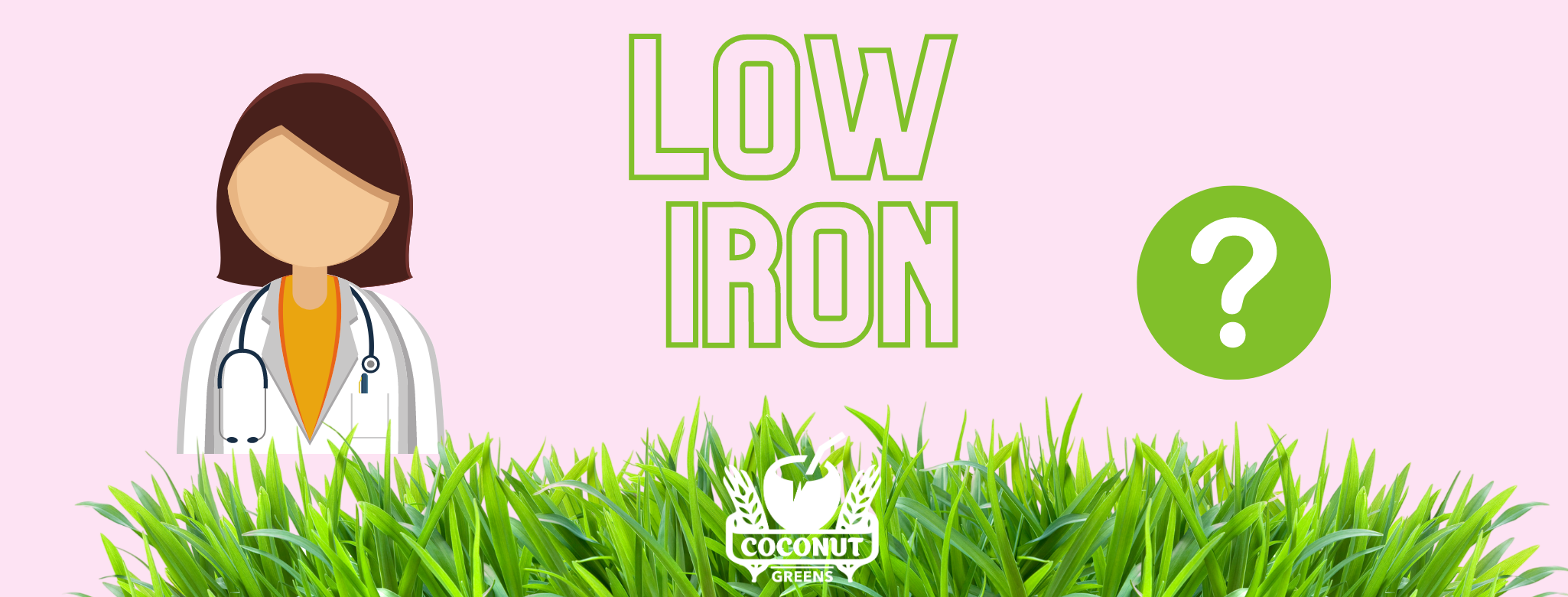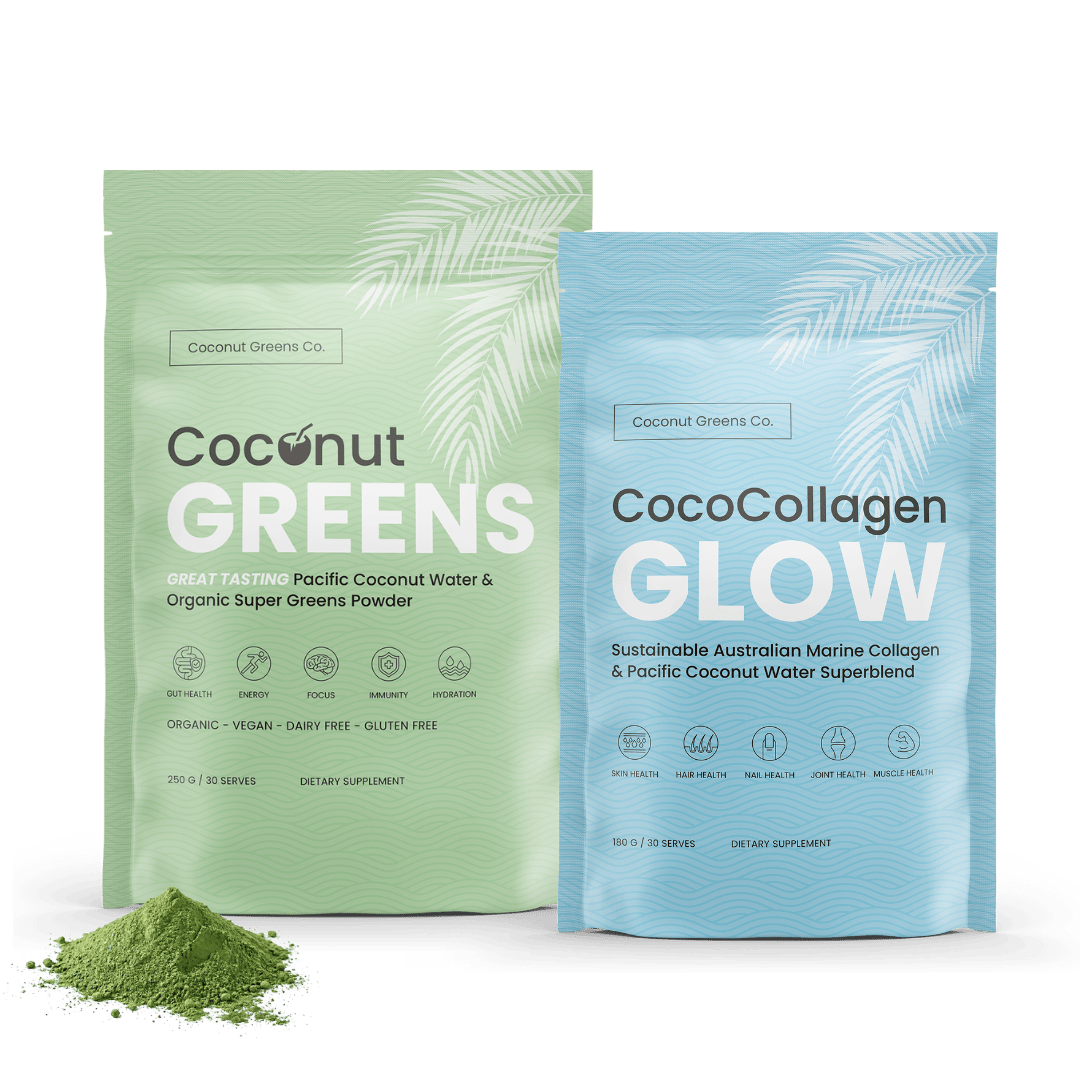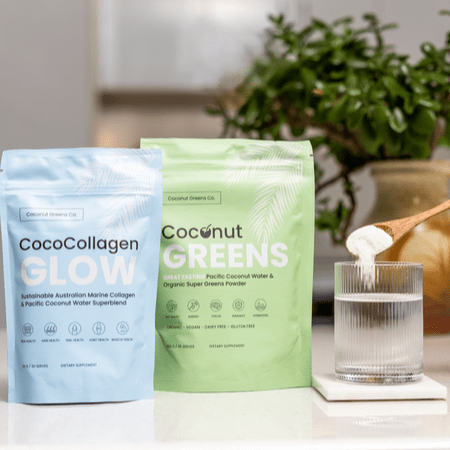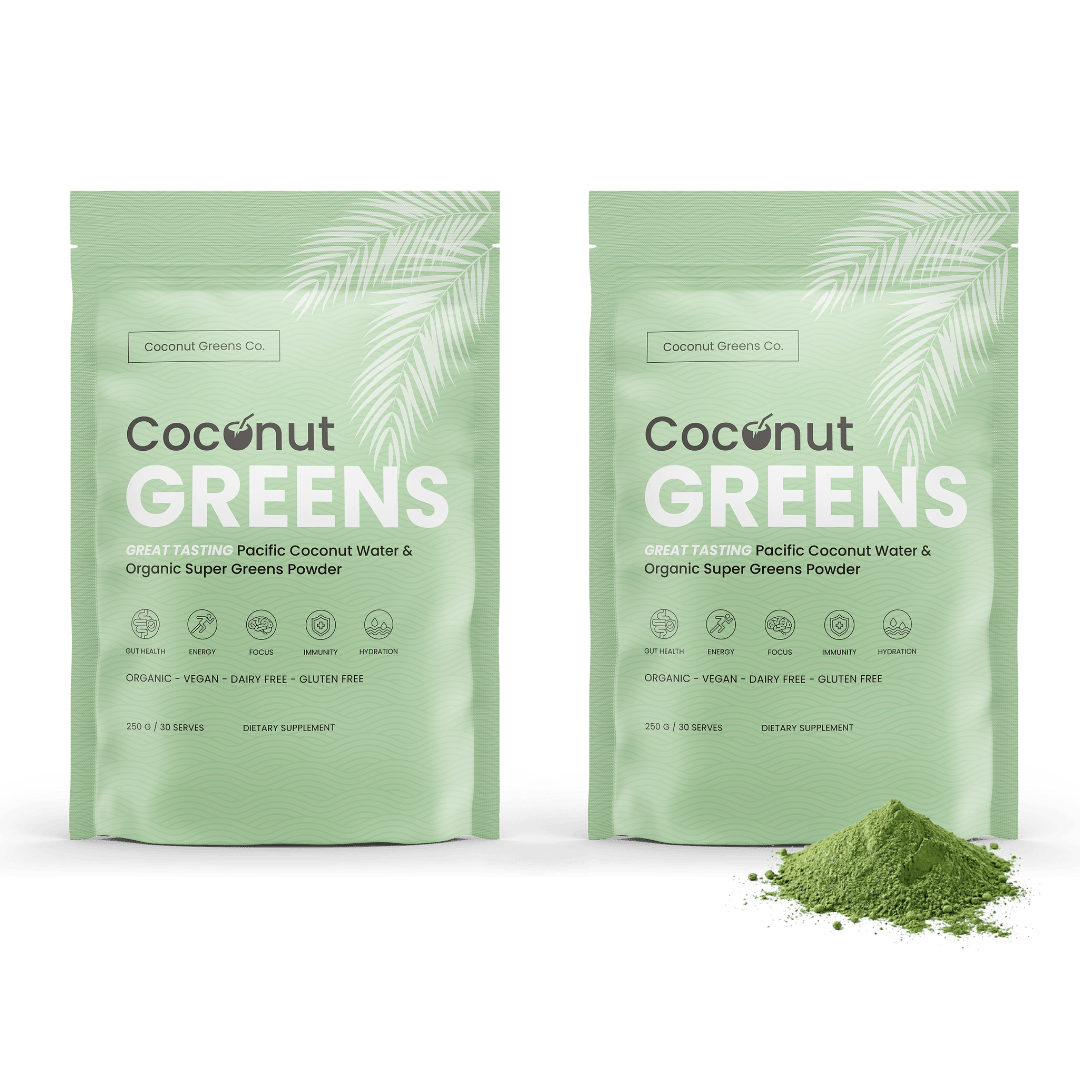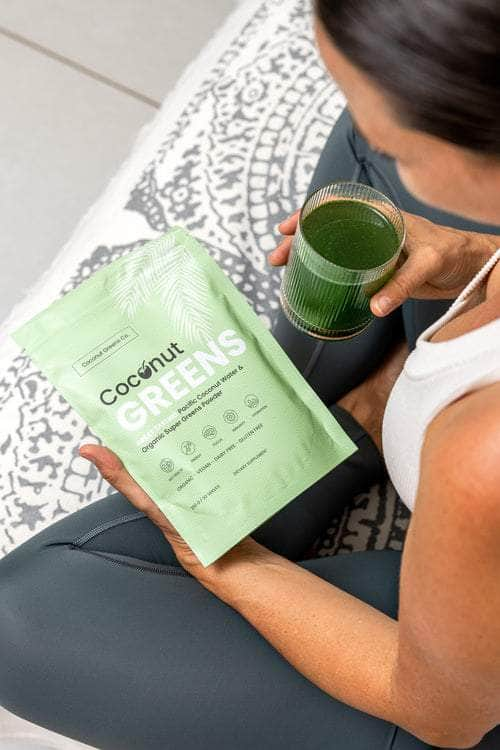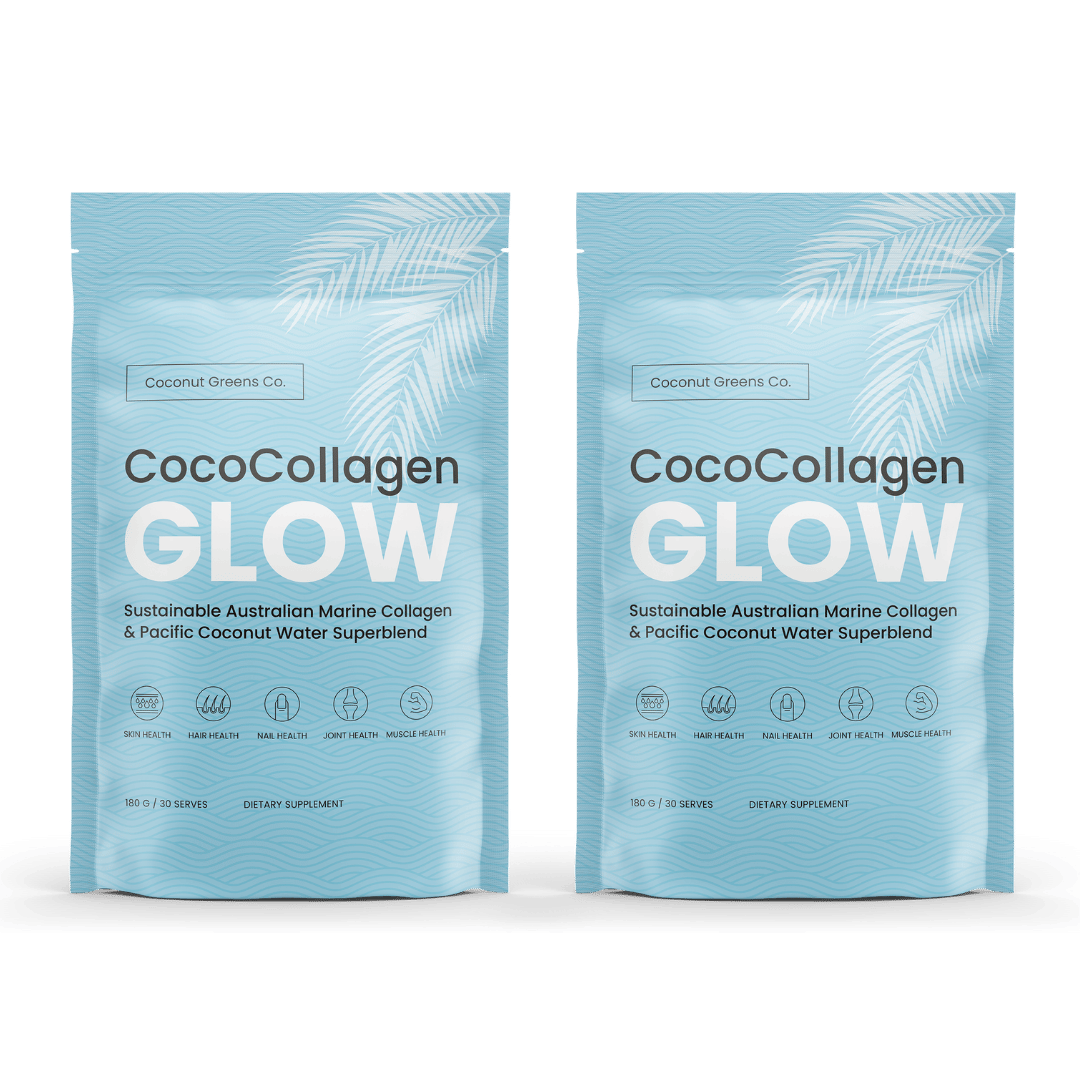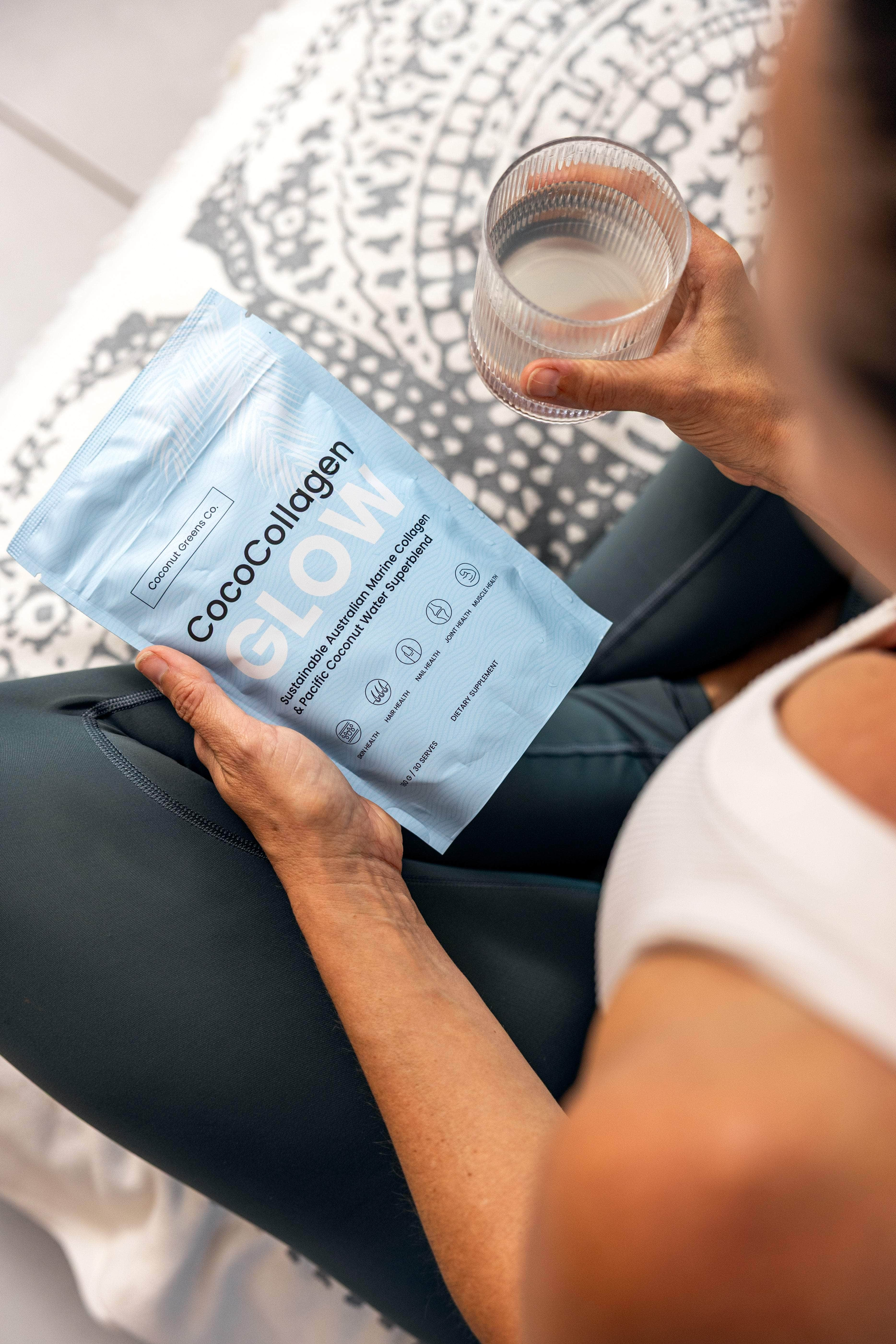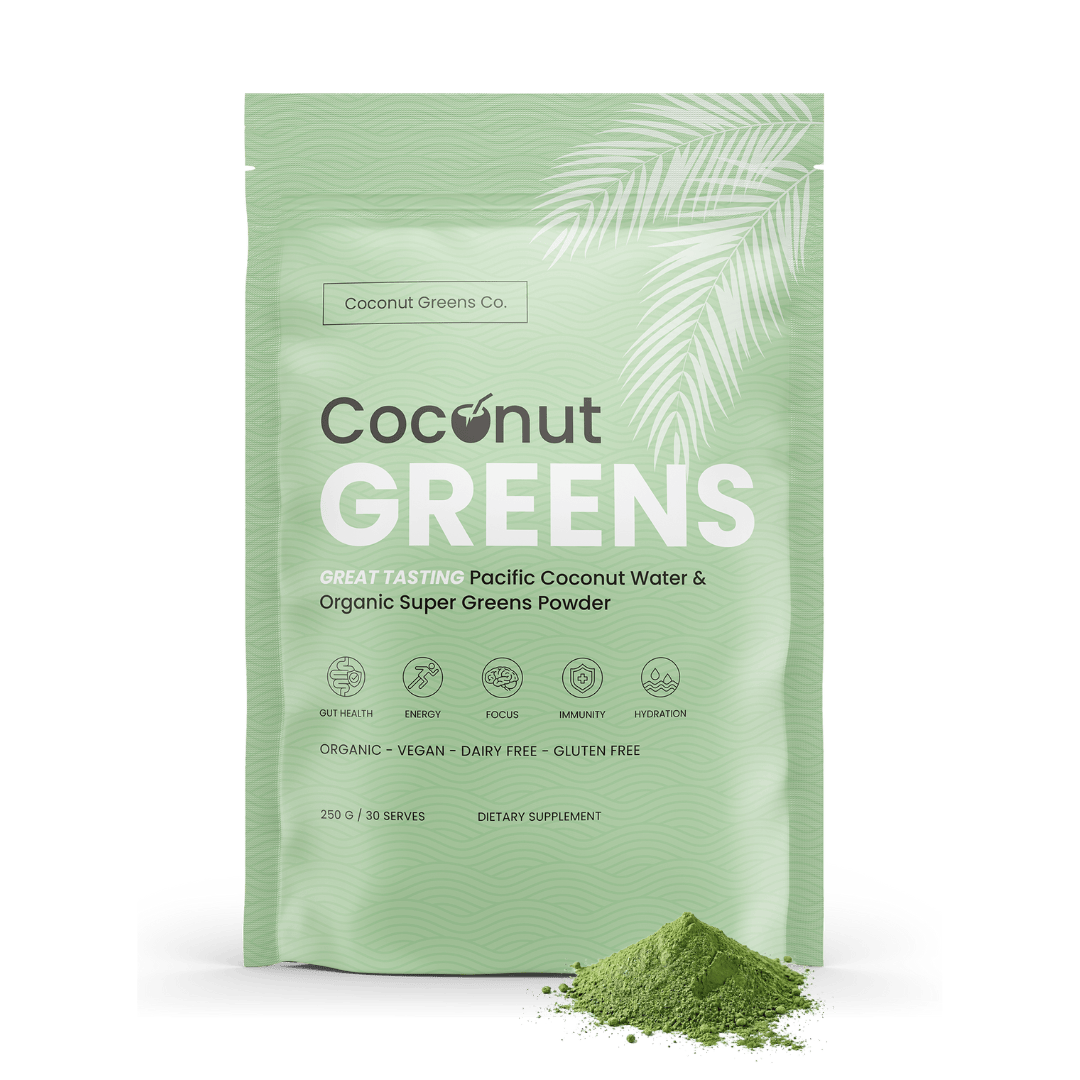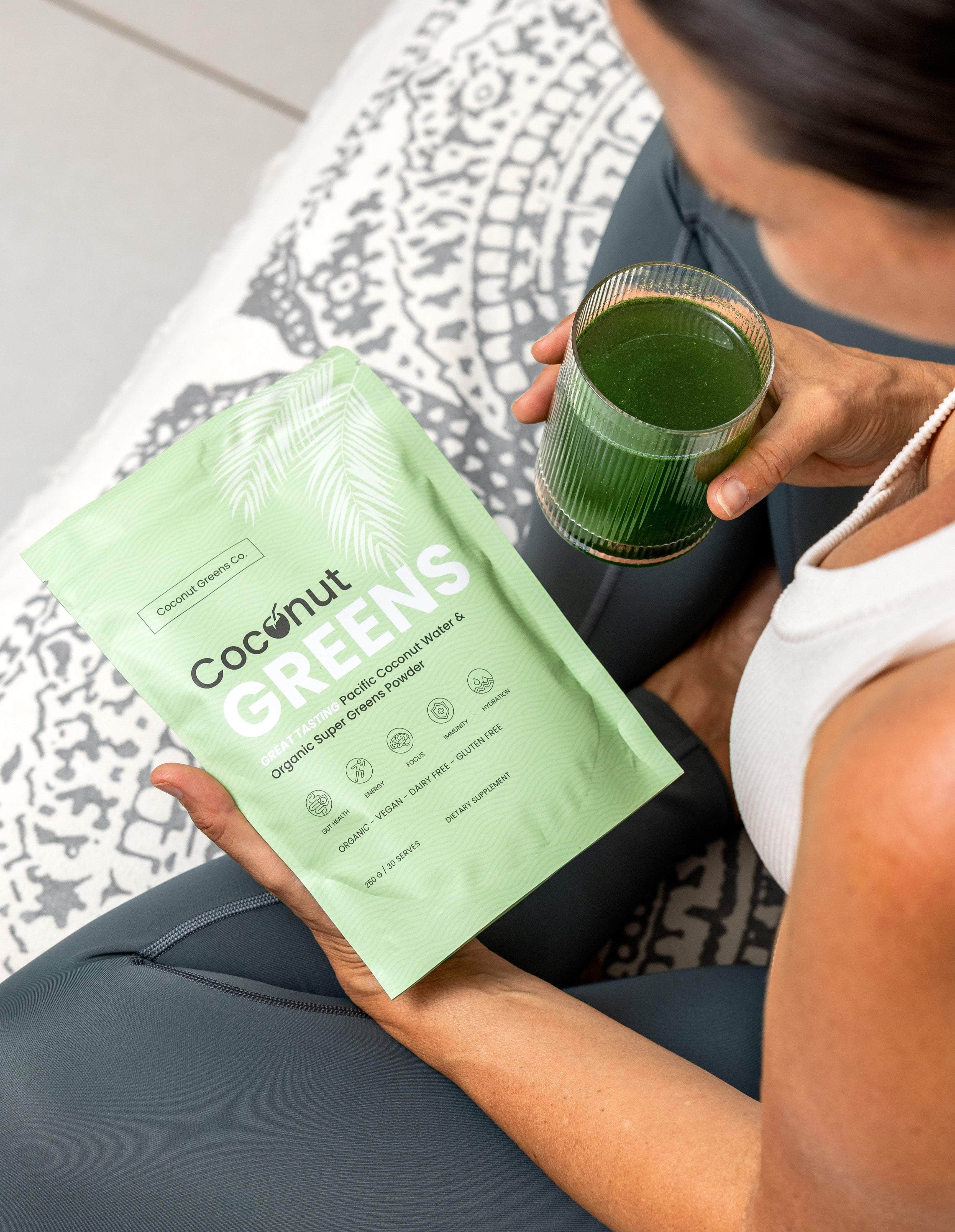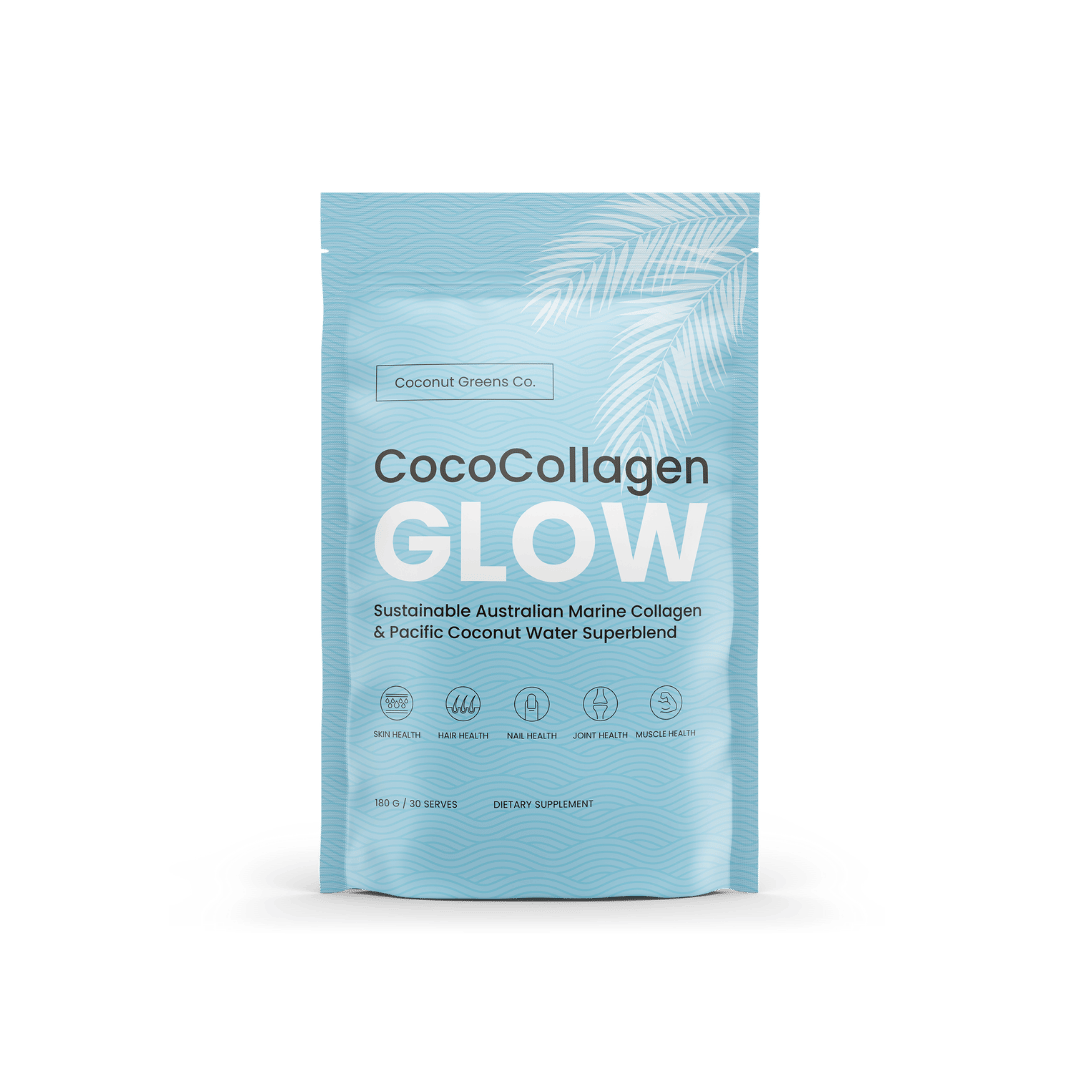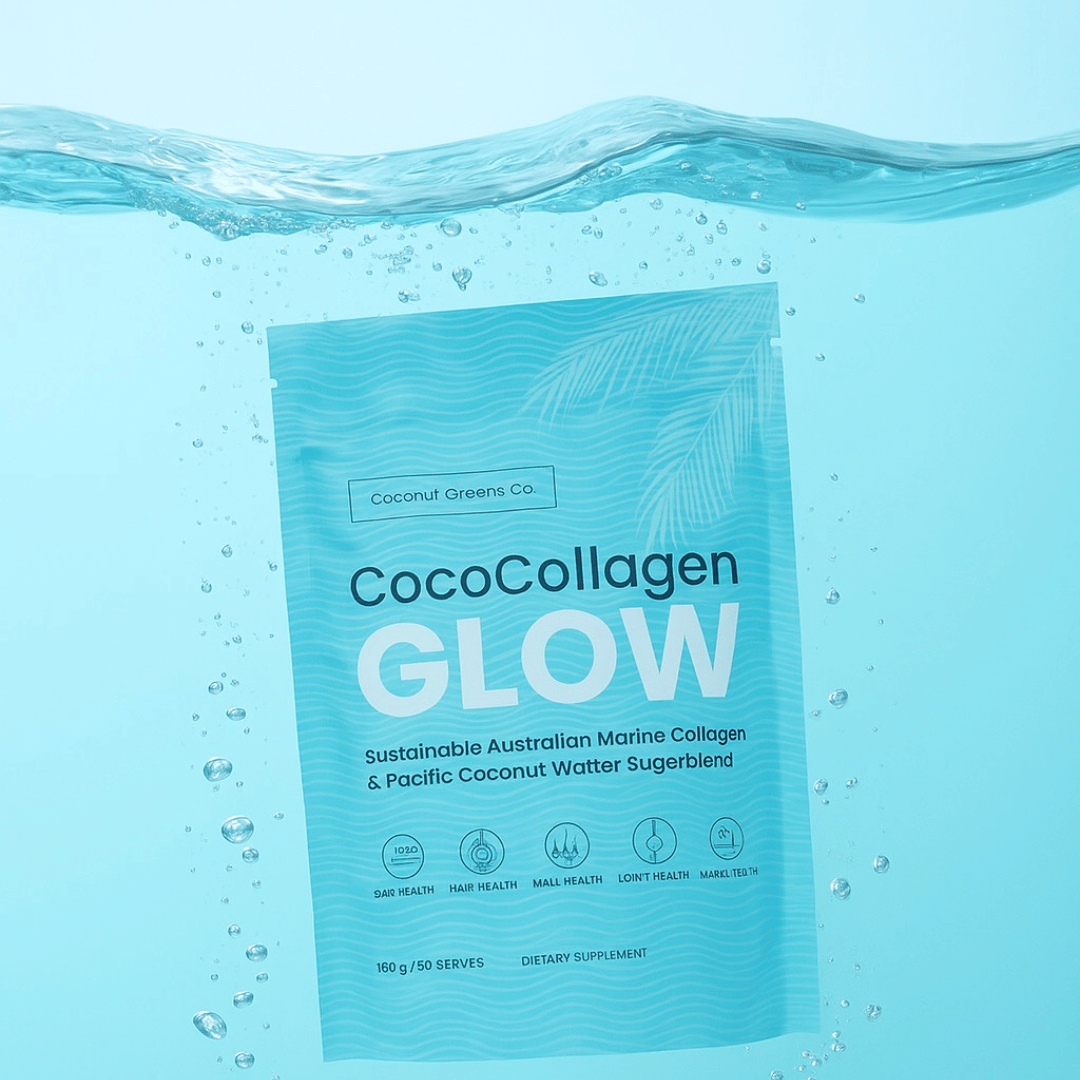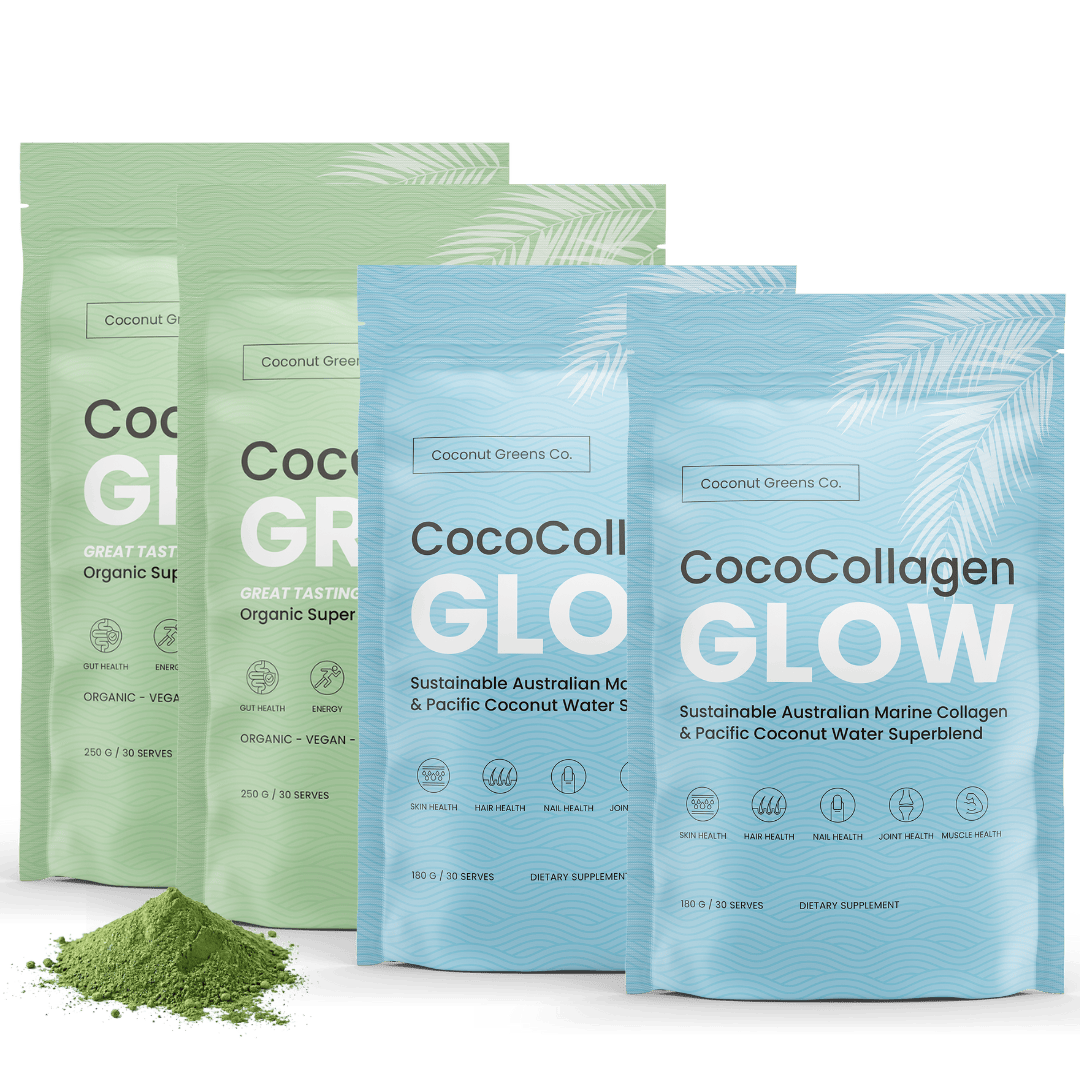“Breast is best,” goes the common refrain around infant nutrition. It’s generally agreed that breastfeeding bestows a wealth of benefits on a new-born. From the nutrient- and antibody-dense liquid gold that is colostrum through to the perfect balance of fats, sugar water and protein of mature breast milk, every feeding session bestows the vitamins, minerals and nutrients a growing body needs.
Breastfeeding is associated with immune-boosting outcomes that lower risks of asthma, diabetes, eczema and childhood obesity. And breastfeeding mums can benefit, too. For mums, breastfeeding may help lower risks of type 2 diabetes, certain types of breast cancer and ovarian cancer.
Breast milk is definitely a special kind of fuel. But did you know that your day-to-day diet can have an impact on your breast milk? Let’s take a look at the current research into coconut water and supergreens and what it may mean for breastfeeding mums.
Coconut water and milk production
At Coconut Greens, we’re all too familiar with the impressive nutritional profile of coconut water – that’s why it forms the basis of our product! Coconut water is high in fibre, vitamin C and electrolytes such as magnesium, sodium and potassium – and it’s an amazing source of lauric acid, an essential fatty acid associated with immune system support.
Current research indicates that the fatty acids found in coconut water are associated with greater milk production, along with richer, fattier breast milk. The high levels of lauric acid, an essential fatty acid, found in coconut water, coconut milk and coconut flesh may therefore be beneficial for nursing mothers.
Leafy greens and breast health
The dark leafy greens often dubbed “supergreens” top the list of must-haves in any balanced dietary regimen. Associated with lowered risks of cancer and heart disease and high in nutrients such as calcium, riboflavin, niacin, folate and zinc, along with a host of essential vitamins, they pack a serious nutritional punch.
On top of all of that, supergreens are a great source of phytoestrogens, which are linked to breast tissue health and increased lactation.
Algae and breast milk dioxins
The micro-algae chlorella continues to turn heads with its perceived health benefits. Bursting with chlorophyll, protein, iron, beta carotene and carotenoids, it’s definitely a superfood contender, which is why it’s a key ingredient of the Coconut Greens recipe.
But recent research out of Japan also indicates that Chlorella may help reduce dioxin levels in breast milk, while also helping to increase immunoglobulin A concentrations. This means it may play a valuable biodefense role.
Spirulina is another protein-rich, high-iron algae superfood that’s long been used as a dietary supplement. And while little research has been conducted into spirulina and breastfeeding yet, the available information indicates that it’s suitable to take during breastfeeding – but as always it’s worth seeking a professional opinion first.
A balanced, healthy diet is best
As with anything balance and moderation is key when it comes to diet. Whether you’re a nursing mum or not, be sure to build your intake around recommended servings, macronutrients and micronutrients – and don’t forget to add some exercise in there as well.
And if you’re planning on adding Coconut Greens to your breastfeeding dietary regimen, run it by your doctor first – it’s always a good thing to have any dietary changes checked out and okayed.
You may also be interested in our blog Iron Boosting Ideas...
